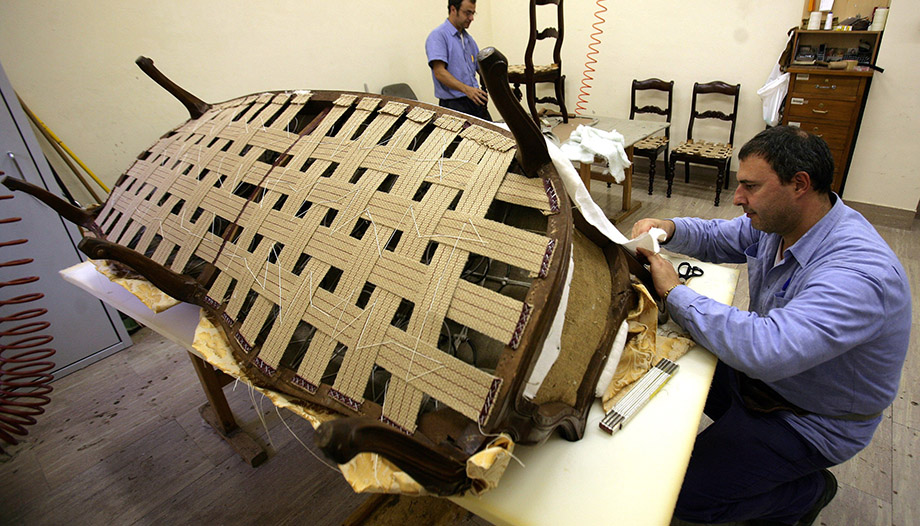Behind the beautiful ceremonies, audiences and events that take place in the Vatican, behind the scenes there is an institution little known to the general public that - quietly and with difficulty - takes care of the logistics that allow these great ceremonies to take place.
We are talking about the Flower Shop, made up of about forty people, who coordinate and prepare whatever is necessary inside the Vatican Basilica, in St. Peter's Square, in the Roman Papal Basilicas, in the Paul VI Hall, in the Pope's apartment, as well as in the audiences inside the Apostolic Palace and in various Vatican buildings.
It also takes care of the decoration and routine maintenance of the furniture and has three restoration laboratories at its disposal: one for furniture and upholstery, another for cabinetmaking and furniture restoration, and a third specialized in gilding. Then there is the assembly department in charge, among other tasks, of setting up to 30,000 chairs when there are celebrations outside the Plaza.
Origin
The name Floreria has an ancient origin. It probably comes from Spanish and referred to those who took care of flowers for ceremonies. The inventories of the 16th century tell us that, from the beginning, there was a Florería (Flower Shop) with tapestries, gobelins and fabrics destined to decorate the rooms and cover large walls. Today the Florist's Shop houses all the non-consecrated objects necessary for pontifical functions.
Formerly it was called Apostolic flower shop and depended on the Apostolic Palace, that is, directly from the Pope, the Secretariat of State and the Prefecture of the Papal Household. In the 1960s and 1970s it was transferred to the Governorate of Vatican City under the name of "Vatican City Governorate".Flower Service"It currently reports to the Infrastructure and Services Directorate, together with the Gardens and Environment service and the Infrastructure sector.
Also spirituality
A tradition of the employees of the entire infrastructure and services management, on which the Flower Shop also depends, is to attend mass every first Friday in the shed of the mechanical workshop.
All employees of the Governorate who so desire can also count on spiritual assistance and can meet with the Pope in various circumstances throughout the year. In addition, this year a family celebration was introduced, which is held outdoors.
Other work
Another task is to take care of removals and restorations present not only in the Vatican, but also in extraterritorial areas and in other parts of Rome, including the headquarters of the Congregations located in via della Conciliazione or in the palace of St. Callixtus.
Not to mention preparations such as, for example, the celebration of the Corpus Dominithe traditional procession that starts from the Basilica of St. John Lateran Lateran to Santa Maria Maggiore.
Conclave
Even knowing that the date of a conclave cannot be predicted, the Flower Shop has an updated plan ready for its organization. From the Sistine Chapel, with the thrones with their mobile canopies, to the iron stove and chimney that will announce with its black smoke and then with its white smoke the election or less of a new pontiff.
In the past they also took care of the 500 rooms that had to be prepared for the accommodation of the cardinals and their entourage, a task now simplified thanks to the accommodation in the Domus Santa Marta, or of other issues such as the task of cutting all the telephone lines.
Floral objects sold for Pope's charity
Today in the Clothing Store, near the train station, there is a section where some of the gifts that Francis receives from the Heads of State and Government during audiences or meetings are exhibited. Even many objects that were stored and dusty in the Flower Shop can now be purchased in exchange for an offering that will go to the Pope's charity.
The Pope's gratitude
Pope Francis in the January 17, 2014 audience with the employees of the Flower Shop expressed his personal thanks for the "care, professionalism and availability" with which they carry out their mission.
He recalled that "organizing the environments for the various meetings of the Pope with pilgrims and the various activities of the Holy See" is an "indispensable" task, in order to obtain welcoming spaces and functional tools.







